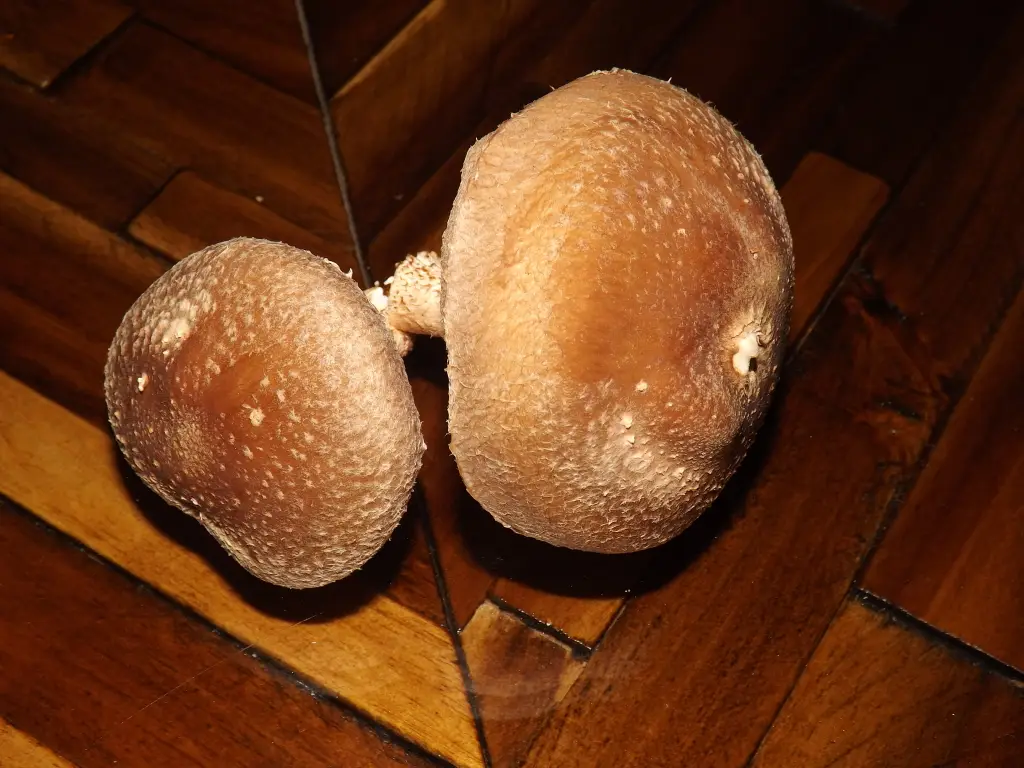The Ultimate Guide to Growing Shiitake (Lentinula edodes) Mushrooms
Growing Shiitake (Lentinula edodes) mushrooms are among the most popular and widely cultivated mushrooms worldwide. Known for their rich umami flavor, high nutritional value, and medicinal properties, Shiitake mushrooms are a fantastic addition to any home garden or commercial farm.
If you’re interested in growing Shiitake mushrooms, this in-depth guide will walk you through the process step by step. From choosing the right substrate to harvesting and storing your mushrooms, we’ll cover everything you need to know for a successful Shiitake mushroom cultivation experience.

What Are Shiitake (Lentinula edodes) Mushrooms?
Shiitake mushrooms originate from East Asia and have been cultivated for over 1,000 years. They grow naturally on hardwood logs, such as oak, beech, and maple, but can also be cultivated on sawdust or other growing mediums.
These mushrooms are valued not only for their delicious taste but also for their health benefits, including:
- Boosting immunity
- Lowering cholesterol
- Providing essential vitamins and minerals
Shiitake mushrooms are commonly used in soups, stir-fries, and medicinal extracts, making them a highly sought-after crop for both home growers and commercial producers.
Growing Shiitake (Lentinula edodes) Mushrooms
Choosing Your Growing Method
There are two primary methods to cultivate Shiitake mushrooms:
- Log Cultivation (Traditional Method)
- Sawdust Block Cultivation (Indoor Commercial Method)
Each method has its advantages, so choose one based on your space, resources, and long-term goals.
Method 1: Growing Shiitake (Lentinula edodes) Mushrooms on Logs
Step 1: Choosing the Right Logs
Shiitake mushrooms thrive on hardwood logs. The best logs include:
- Oak (Preferred choice)
- Beech
- Maple
- Birch
✅ Logs should be 4 to 8 inches in diameter and 3 to 4 feet long.
✅ Freshly cut logs are best—aged 2-3 weeks to allow natural defenses to weaken.
? Avoid conifers (pine, cedar, spruce)—they contain resins that inhibit mushroom growth.
Step 2: Inoculating the Logs
Once your logs are prepared, they need to be inoculated with Shiitake spawn.
What You’ll Need:
✔ Shiitake mushroom spawn (plug, sawdust, or grain spawn)
✔ Drill and drill bit (5/16” for plug spawn)
✔ Mallet (if using plug spawn)
✔ Wax (cheese wax or beeswax)
✔ Paintbrush or wax applicator
Inoculation Process:
- Drill holes spaced 6 inches apart along the length of the log, in a diamond pattern.
- Insert spawn into each hole. If using plug spawn, tap in with a mallet.
- Seal holes with wax to prevent contamination and moisture loss.
? Best Time to Inoculate: Late winter to early spring when logs still retain moisture.
Step 3: Incubation Period for Growing Shiitake (Lentinula edodes) Mushrooms
Logs must be kept moist and shaded for 6-12 months before fruiting begins.
? Ideal Conditions:
- Humidity: 80-90%
- Temperature: 55-75°F (13-24°C)
- Shade: Place in a wooded area or shaded greenhouse
? Watering:
If logs dry out, soak them for 24 hours in non-chlorinated water every few weeks.
Step 4: Initiating Fruiting
After incubation, Shiitake mushrooms will start fruiting naturally when conditions are right. To force fruiting, soak logs for 24-48 hours in cold water.
? Harvesting:
- Mushrooms are ready when caps are 2-4 inches wide.
- Gently twist and pull the mushroom from the log.
? Yield:
A single log can produce mushrooms for 3-5 years with regular harvests.
Method 2: Growing Shiitake (Lentinula edodes) Mushrooms on Sawdust Blocks
Step 1: Preparing the Substrate
For indoor Shiitake cultivation, sawdust blocks are a fast and efficient method.
? Best Substrate Mix:
- Hardwood sawdust (oak, maple)
- Bran (Wheat or rice bran) (10-20% for extra nutrients)
- Water (Moist but not soggy)
? Optional: Gypsum (Calcium sulfate) for added nutrients.
Mix ingredients thoroughly and fill into grow bags or plastic containers.
Step 2: Sterilization and Inoculation for Growing Shiitake (Lentinula edodes) Mushrooms
- Sterilize substrate by steaming at 15 PSI for 90 minutes to kill contaminants.
- Cool the substrate before adding Shiitake grain spawn.
- Mix well to distribute the spawn evenly.
? Incubation: Store in a dark room at 70-75°F (21-24°C) for 2-3 months until white mycelium fully colonizes the substrate.
Step 3: Fruiting Conditions
Once fully colonized, expose blocks to fruiting conditions:
- Temperature: 55-65°F (13-18°C)
- Humidity: 85-95%
- Light: Indirect natural light (or LED grow lights)
- Ventilation: Fresh air exchange to prevent CO₂ buildup
After 7-14 days, you’ll see Shiitake mushrooms forming.
Harvesting and Storing Shiitake Mushrooms
? Harvesting:
- Cut mushrooms at the base when caps are 80-90% open.
- Avoid pulling mushrooms, as this can damage future growth.
? Storing:
- Fresh: Store in a paper bag in the fridge for up to 2 weeks.
- Dried: Dehydrate at 110°F (43°C) and store in airtight containers.
- Frozen: Sauté briefly and freeze for long-term storage.
Common Problems & Solutions
1. Mushrooms Not Fruiting?
✅ Check humidity (should be 85-95%).
✅ Ensure fresh air exchange to prevent CO₂ buildup.
✅ If using logs, try a cold water soak for 24 hours.
2. Contamination Issues?
✅ Use sterile equipment when inoculating.
✅ Avoid overwatering—excess moisture leads to mold.
Where to Buy Shiitake Mushroom Supplies
- Shiitake Spawn & Supplies: The Spore Depot
- Hardwood Sawdust & Logs: Field and Forest Products
- Mushroom Grow Bags & Equipment: Mushroom Mountain
Final Thoughts on Growing Shiitake (Lentinula edodes) Mushrooms
Growing Shiitake mushrooms is a rewarding and profitable endeavor, whether you choose log cultivation for outdoor longevity or sawdust blocks for faster harvests.
With proper humidity, light, and fresh air, you can enjoy fresh Lentinula edodes mushrooms for years. Whether for culinary, medicinal, or commercial purposes, Shiitake mushroom farming is an exciting and sustainable way to grow your own food.
? Start growing today and enjoy the delicious benefits of fresh Shiitake mushrooms!
#ShiitakeMushrooms #LentinulaEdodes #MushroomFarming #GrowShiitake #MushroomCultivation #FungiFarming
